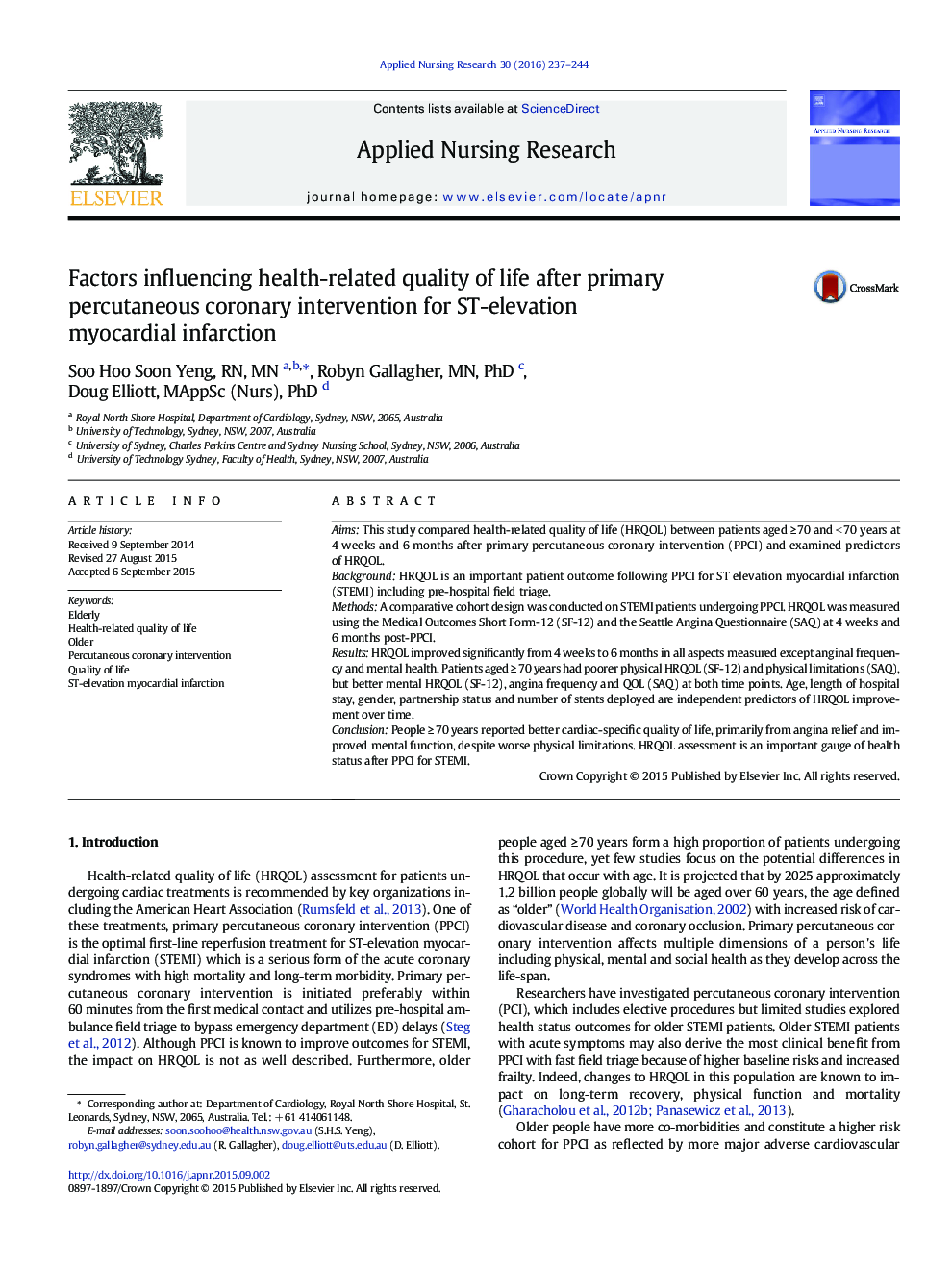| Article ID | Journal | Published Year | Pages | File Type |
|---|---|---|---|---|
| 2645024 | Applied Nursing Research | 2016 | 8 Pages |
AimsThis study compared health-related quality of life (HRQOL) between patients aged ≥ 70 and < 70 years at 4 weeks and 6 months after primary percutaneous coronary intervention (PPCI) and examined predictors of HRQOL.BackgroundHRQOL is an important patient outcome following PPCI for ST elevation myocardial infarction (STEMI) including pre-hospital field triage.MethodsA comparative cohort design was conducted on STEMI patients undergoing PPCI. HRQOL was measured using the Medical Outcomes Short Form-12 (SF-12) and the Seattle Angina Questionnaire (SAQ) at 4 weeks and 6 months post-PPCI.ResultsHRQOL improved significantly from 4 weeks to 6 months in all aspects measured except anginal frequency and mental health. Patients aged ≥ 70 years had poorer physical HRQOL (SF-12) and physical limitations (SAQ), but better mental HRQOL (SF-12), angina frequency and QOL (SAQ) at both time points. Age, length of hospital stay, gender, partnership status and number of stents deployed are independent predictors of HRQOL improvement over time.ConclusionPeople ≥ 70 years reported better cardiac-specific quality of life, primarily from angina relief and improved mental function, despite worse physical limitations. HRQOL assessment is an important gauge of health status after PPCI for STEMI.
